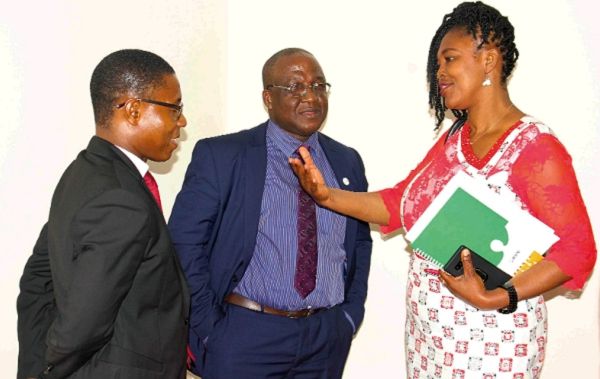
Intensify efforts to fight child marriage — PPAG
The Planned Parenthood Association of Ghana (PPAG) has called for intensive, conscious and deliberate national efforts to fight the canker of child marriage in the country.
According to the Executive Director of PPAG, Mrs Abena Acheampong, the adverse impacts of child marriage, especially on the girl-child, were serious and, therefore, needed to be treated as an emergency.
"Child marriage has profound physical, intellectual, psychological and emotional impacts, cutting off educational opportunity and chances of personal growth.
The entire society is also affected when the victims are not able to contribute meaningfully to socio-economic development,” she said.
Congress
Mrs Acheampong was speaking at the opening ceremony of the 16th annual congress of Youth Action Movement (YAM), the youth wing of PPAG, held in Accra on Tuesday, May 7.
The event discussed the causes and challenges associated with child marriage and how it could be resolved as soon as practicable.
It was held on the theme: “Addressing child marriage; a shared responsibility.”
Child marriage is a common harmful traditional practice (HTP) in the country and causes a disproportionate amount of violence against girls and perpetuates traditional notions about female inferiority.
The United Nations Population Fund estimates that 407,000 girls born in Ghana between 2005 and 2010 will be married before age 18 by 2030 unless urgent action is taken.
Following intensive campaigns and work by government and non-governmental organisations, Ghana has seen some progress, particularly in the legal area, where there is a framework to protect women and girls against these practices.
Mrs Acheampong explained that girls who were married off before the age of 18 often gave birth to more children and lost more children to neonatal and childhood diseases.
She was quick to add that child brides were usually vulnerable and often subjected to physical, sexual and emotional abuse.
She stated that though Ghana had signed many international conventions and agreements that prohibited child marriage, including its own national action plan and policies, the practice still persisted.
Some of such documents, she explained, were the African Charter on the Rights and Welfare of the Child, Convention on the Elimination of all Forms of Discrimination against Women (CEDAW), the 1992 Constitution of Ghana, Ghana Children’s Act of 1998 and the Domestic Violence Act of 2005.
Others are the 1994 National Population Policy, the 2000 Adolescent Reproductive Health Policy and the National Gender Policy, 2015.
Fistula
For his part, a Reproductive Health Specialist with the United Nations Population Fund (UNFPA), Dr Robert Kwesi Mensah, said about 50 per cent of girls who got betrothed were prone to contracting fistula.
He explained that the problem was as a result of the underdeveloped nature of the reproductive system of such girls which resulted from complications during sex and childbirth.
“Young people are more likely to get obstructed labour and, therefore, fistula. Child marriage is a major contributing factor of child pregnancy.
"Ghana records about 1,350 new cases of fistula annually and close to 20 per cent of such cases are associated with young girls due to early childbirth," he said.
The condition
Fistula is a tract that is normally formed between the vagina and either the bladder or the rectum of a woman resulting from obstructed labour and sometimes trauma from sex and other things that may be inserted into the vagina.
Dr Mensah, therefore, called for an awareness creation of child marriage with relevant evidence to show its consequences.
